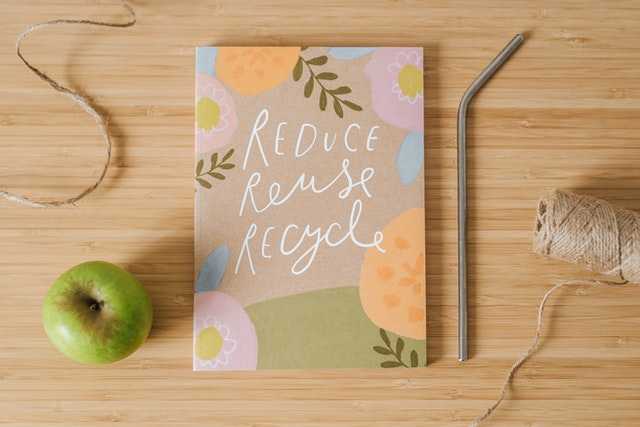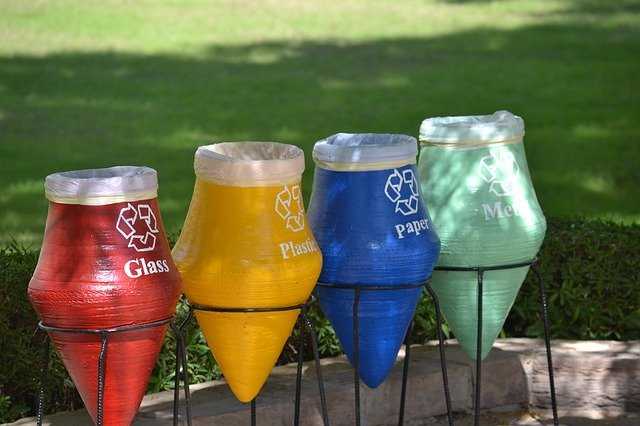Waste Management: Benefits Of Waste Recycling

Recycling is similar to exercising in that we all know we must do it, but we don't always do it—and some of us don't do it at all.
What is recycling
Recycling involves dismantling and repurposing materials that would otherwise be discarded.
.png)
Many municipalities and companies are making recycling simple by putting labeled containers out for public use or providing recycling bins for residents and businesses with roadside service.
Benefits of Waste Recycling
There are numerous reasons, though, why you should make every effort to recycle as much as possible. Here are seven compelling reasons why you should start recycling your trash if you haven't already.
Benefit #1: Reduce Global Warming
Our earth is already feeling the effects of global warming, and we must do everything we can to mitigate the damage.
When certain materials are made from the ground up, considerable amounts of CO2 are released into the sky.
The manufacture of new aluminum, for example, produces 95 percent more CO2 than recycling existing metal cans.
Furthermore, recycling paper saves trees—each ton of paper recycled saves 17 trees. In a year, each of these trees can remove about 250 pounds of carbon dioxide from the atmosphere.
Benefit #2: Helps clean the air
Toxins are released into the air by many firms that create plastics, metals, and paper products.
If these materials are recycled, there will be less need for industries to manufacture new materials, resulting in less pollution being released into the sky.
Furthermore, the disposal of certain recyclable materials might result in severe pollution. Plastics, for example, are frequently burned in incinerators.
.jpg)
Plastics are created using oil, and when the plastic burns, the oil is discharged into the environment, resulting in significant greenhouse gas emissions.
Benefit #3: Generates Employment
Recycling is a thriving business that generates billions of dollars each year, from manufacture to processing, collection to invention.
Our need to recycle will only become more pressing as the world's population grows and technology advances.
Recycling generates considerably more jobs than landfills, enough to have a significant impact on a small town.
Benefit #4: Raises standard of groundwater
Garbage in landfills is usually not handled in any manner; it is just dumped in a large hole and covered with dirt.
Much of this junk isn't environmentally friendly or biodegradable, so it's no wonder that toxins end up in our drinking water.
Rain and other runoff from landfills pollute our streams, rivers, lakes, and other bodies of water, endangering ecosystems.
It's also one of the reasons why it's dangerous to drink from streams and rivers while trekking or camping, even if the surroundings appear to be beautiful.
Recycling helps to reduce waste in landfills, and the more we recycle, the better our water systems will become.
.jpg)
Benefit #5: Improves Energy savings
It takes a lot more energy to make something from scratch than it does to recycle something.
For example, burning plastic uses twice as much energy as recycling it; making paper uses 64% more energy than recycling it, and recycling just one pound of steel can save enough energy to power a 60-watt lamp for a day.
Benefit #6: Prevents Overburdened landfills
Landfills are quickly running out of space, especially in urban areas.
To avoid the problem, coastal cities have been dumping rubbish into their oceans for decades, but with global sea ecosystem disasters, this is no longer an option.
Worse yet, it's challenging to find sites in suburban and rural locations where inhabitants will accept landfills without resistance. The scarcity of landfill land will only worsen in the future.
Recycling gives us some reason to be optimistic about this bleak situation. According to studies, 60 to 75 percent of waste in landfills can be recycled.
.jpg)
Benefit #7: Increases the value of the property
It goes without saying that a dump close to your home will lower your property values dramatically.
Recycling minimizes the amount of landfill space required.
This helps to keep property values high and homeowners satisfied by reducing the number of dwellings built near landfills.
When recycled materials are used instead of virgin resources, industrial manufacturers and processing plants save a lot of money on energy and extraction tactics.
They also ensure that fundamental resources do not become scarce, ensuring that demand and prices remain low and that their business may operate for decades.
Making a difference
It only takes one individual to make a difference. It's easy to feel discouraged when there are so many worthy causes to support—especially when the crisis is so prevalent that it's difficult to see how much of a difference your own efforts are making.

Many people believe the same thing about recycling, however, the truth is that even modest actions of recycling have a tremendous impact.
Everyone benefits from recycling, and it just takes a little garbage sorting to get started.
Recycling will undoubtedly become more popular as landfill space becomes scarce and resources become scarce.
Author Bio
The Editorial staff includes content researchers from various areas of knowledge. They add a plethora of expertise to the Hubslides Editorial team. They constantly and frequently oversee, produce and evaluate contents that are most ideal to aid impacting knowledge to readers.
Article Comments
No Comments!
At present there are zero comments on this article.
Why not be the first to make a comment?
Similar Articles
Sponsor
Search Articles
Experts Column
Latest Articles
Featured Articles
Most Popular Articles












